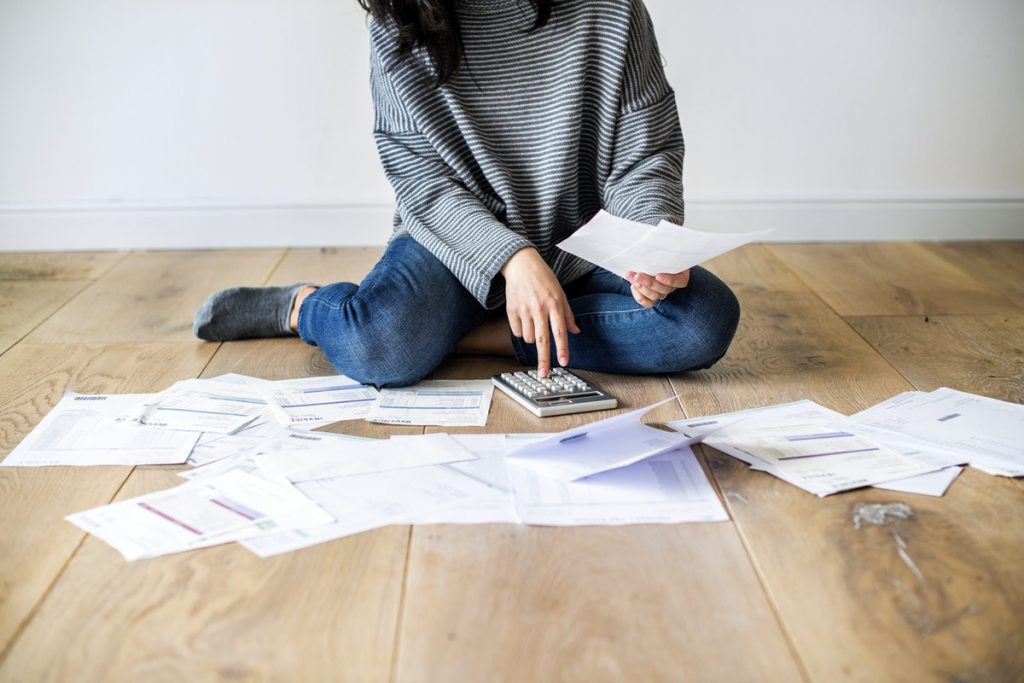
Let’s cut to the chase. No silly introductions. No puns. No frivolity.
Financial experts, money.co.uk have put together some really helpful guidance on spending, paying down debt, managing mortgage and rent payments, credit card debt and more. With that in mind, here are 7 tips for managing money and debt during the COVID-19 pandemic.
CUT BACK ON SPENDING TO PAY DOWN DEBT
If you aren’t already in the habit of carefully constructing a monthly budget, this is a good time to get back to basics and make one. This starts with a calculation of your incomings and outgoings and looking for areas where you can cut out any non-essential expenses.
For example, with gyms closed, there’s no reason to keep paying your gym membership. Most gyms these days offer free anytime cancellation or will freeze your membership. Similarly with sports fixtures being
Any savings you make from cutting back plus any money you had ear-marked for travelling or other leisure activities that you can’t participate in can be used to pay down debt. It may be small, but every little helps.
HOW DO I MANAGE MORTGAGE OR RENT PAYMENTS?
On 17th March the government announced that all mortgage providers must allow homeowners to take a three-month payment holiday if they’ve been affected by coronavirus in any way.
Speak to your lender about taking advantage of this. It’s important to keep in mind that when you take a mortgage payment holiday, the three-month period will be added to the end of your term rather than it simply being forgotten.
For example, if you have 20 years left on your mortgage, the term will increase to 20 years and three months. Be aware that during those three months, interest still accrues, so your mortgage repayments after will increase slightly.
BUT WHAT IF I’M RENTING?
To help renters having trouble keeping up with payments, the government introduced emergency legislation that protects renters from being evicted for at least three months. It’s also important to speak to your landlord and see how they can accommodate you during this difficult time.
You can also apply for Council Tax Support through your local council’s website to have council tax payments deferred for a period of time.
WHAT ABOUT CREDIT CARD DEBT?
Credit card debt can creep up on you, even in the best of times. It can be increasingly stressful if you’re facing a drop in income or the loss of your job.
According to the Financial Conduct Authority’s (FCA) rules, lenders and debt collectors should treat people who are struggling to make payments “with forbearance and due consideration’’. This means that if you can’t make a payment this month because your income has fallen they should work to help you.
Several banks and credit card providers have instituted measures such as payment holidays to help you through this period. Some providers are increasing credit limits on credit cards and overdrafts if you depend on them for everyday expenses. While some are waiving their fees for missed payments if you have coronavirus-related financial problems.
CHANGE IN PERSISTENT DEBT RULES
During the outbreak, the FCA has also made changes to its persistent debt rules, which means that credit card providers can’t cancel your card until 1 Oct 2020.
Other steps you can take is to avoid paying interest on your debt by transferring your balance to a 0% balance transfer card. However, due to the financial situation right now these deals may not be available for long, so apply as soon as you can.
SHOULD YOU CONSIDER BORROWING MONEY?
Borrowing money when you’re already struggling with debt is probably a bad idea.
Right now we don’t know how long the coronavirus situation will last. Getting into more debt may get you into a debt cycle you can’t get out of even when things return to normal. It’ll be difficult for a while, but the good thing is everybody is in this together, even then lenders. They know why you’re struggling so if you contact them, they’ll find a way to help you out.
WHERE CAN YOU GET FREE DEBT HELP?
If you want to speak to someone to get free debt help, you can speak to one of the following debt charities.
- Citizens Advice can provide free help in person or by phone
- StepChange Debt Charity can provide advice or a free debt management plan (DMP)
- National Debtline can offer free advice by phone and help you set up a free DMP
- PayPlan is an independent provider of free DMPs
- Shelter is a housing charity that can provide advice by phone, online or in person
- Christians Against Poverty can visit you at home to give advice and help you budget
THE BOTTOM LINE
Nobody should feel like they’re in this alone. Getting advice can help you to prioritise your debts, set a realistic budget, plan how you will pay off your debts, and communicate with your creditors. We hope we can all get through this together.





